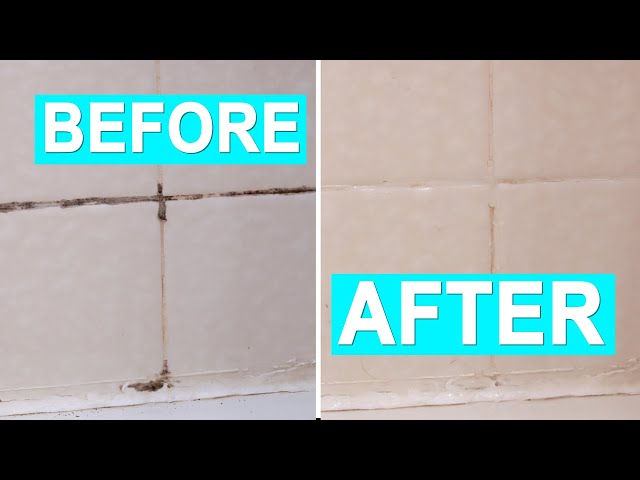Effective Strategies to Stop Your Dog from Eating Poop and Enhance Health in 2025
One disturbing behavior that many dog owners encounter is coprophagia, or the habit of dogs eating feces. This behavior, though not uncommon, poses significant health risks and raises concerns for pet owners. Understanding how to prevent coprophagia in dogs improves not just your dog's health, but also the quality of your relationship with your furry friend.
In this article, we will explore valuable dog poop eating solutions, delve into effective training methods, and provide insights into understanding canine motivations and behavior. Additionally, we’ll offer practical tips and expert advice that will help you successfully stop your puppy from eating poop while establishing healthy habits through effective training. From understanding canine nutritional needs to implementing a rewarding system, you’ll have all the necessary tools to tackle this issue head-on.
By the end of this guide, you’ll feel equipped with knowledge and methods to help your dog lead a healthier, happier life. Let’s dive in!
Understanding Coprophagia in Dogs and Its Impacts
Before attempting to address the issue of feces eating, it’s fundamental to understand why this behavior occurs. Dogs engage in coprophagia for a variety of reasons, which can include instincts from their wild ancestors, nutritional deficiencies, or stress-related behaviors.
Instinctual Reasons for Poop Eating
In the wild, dogs may consume feces to erase any signs of their presence, thus avoiding predators. This instinct can occasionally surface in domestic dogs, especially in young puppies. Although it may seem perplexing, this behavior often has deep-rooted psychological and instinctual elements.
Nutritional Deficiencies and Health Issues
Sometimes, dogs eat feces due to dietary deficiencies. If a dog is not receiving adequate nutrition, it may ingest its own waste to reclaim lost nutrients. Additionally, health issues such as diabetes or parasites can lead to increased hunger and result in this behavior. Consulting a veterinarian for dog health issues from poop eating, and discussing your dog's diet will be essential for ensuring they receive balanced nutrition.
Stress and Anxiety Factors
Stress in dogs can result from various triggers, including changes in the environment, new family members, or lack of attention. These stressors can lead dogs to seek comfort in familiar scents, which might include feces. It's crucial to create a calm, safe, and enriching environment for your pet to alleviate their anxiety.
Understanding these underlying reasons is the first step in both preventing and addressing the habit of poop eating. With this foundation, we can now explore effective training methods to stop dogs from eating poop.
Implementing Effective Training Techniques
Once you grasp the reasons behind coprophagia, you can begin training your dog to avoid this behavior altogether. Several effective training methods for dogs exist, which hinge on understanding canine psychology and employing positive reinforcement.
Developing Commands and Consistency
Incorporating specific commands can significantly aid in mitigating this behavior. Establishing a command to stop your dog from eating poop is essential. Use a firm yet calm command like "leave it" or "no." Reinforce this behavior consistently so your dog understands that eating feces is unacceptable.
Utilizing Positive Reinforcement
Positive reinforcement is crucial for any training program. When your dog successfully follows your command and avoids eating feces, reward them immediately with praise or treats. This method reinforces good behavior and encourages your dog to adhere to the guidelines you've set.
Employing Deterrents in the Environment
Creating an environment where poop eating is less tempting is vital. You can use commercial poop eating deterrents available in pet stores, or even natural remedies like adding pineapple or pumpkin to their diet. These substances can change the taste of their stool, making it unappealing.
By implementing these strategies, you'll set your dog up for success in overcoming its poop-eating habits. However, be patient – training takes time and persistence.
Enhancing Dog Diet to Prevent Coprophagia
A dog's diet plays a crucial role in their behavior, especially regarding nutritional deficiencies that might lead to coprophagia. A well-balanced diet can help dissuade your dog from engaging in this unwanted behavior.
Choosing the Right Dog Food
Consider the nutritional content of your dog’s food. Ensure it meets their specific needs based on age, size, and activity level. High-quality dog food should be rich in essential proteins, vitamins, and minerals. Consulting with a vet regarding the best dietary choices tailored to your dog’s specific needs is highly advisable.
Incorporating Supplements for Health Improvements
Certain supplements can also contribute positively to your dog's overall health, for instance, probiotics and digestive enzymes. These can improve digestion, potentially reducing the urge to eat poop. Always discuss supplement intake with your veterinarian to confirm it aligns with your dog’s health requirements.
Maintaining Proper Grooming and Hygiene
Good grooming practices, including regular cleaning of the dog's living and eating spaces, are essential for overall health and hygiene. Keeping the area clean discourages the habit of stool-eating. Ensuring your dog’s coat is clean can also diminish the likelihood of them eating feces due to scent tracking.
After focusing on diet and nutrition, let’s shift our attention to additional behavior modification techniques that can help improve your dog’s habits.
Behavior Analysis and Modification for Dogs
Analyzing your dog’s behavior is instrumental in understanding and addressing coprophagia. Different triggers might lead to this behavior, and observing your dog closely can pave the way for effective modifications.
Recognizing Behavioral Triggers
Pay attention to when your dog exhibits this behavior. Is it after stressful situations? When they are left alone? By identifying these patterns, you can work on modifying those specific triggers, whether through training, environmental changes, or enhancing their confidence.
Establishing Good Habits and Routines
Routine and structure are vital for dogs. Establishing a daily routine, including regular feeding and exercise times, can help reduce anxiety and promote good behavior. Regular bathroom breaks should also be incorporated into the schedule to prevent accidents and reduce the temptation to eat poop out of boredom.
Involving Professional Help if Necessary
If your dog's poop-eating behavior persists despite your best efforts, consulting a professional dog trainer or behaviorist may be beneficial. They can provide personalized guidance and tailor a training plan to meet your dog's specific needs, ensuring effective and humane practices are followed.
Now that we've explored behavior analysis and diet, let's look into the broader strategies to enhance your dog's health while discouraging undesirable habits.
Promoting Dog Health and Happiness
Beyond just preventing coprophagia, it’s important to focus on overall dog health and happiness. A healthy dog is less likely to engage in undesirable behaviors. Here we discuss the best practices to foster a holistic approach to dog care.
Enhancing Environmental Enrichment
Providing mental stimulation through toys, puzzles, and interactive activities can keep your dog engaged and reduce anxiety-related behaviors. Various dog toys designed for cognitive enrichment can keep their mind sharp and prevent boredom, thus minimizing the chances of poop eating.
Encouraging Physical Activity
Regular exercise is crucial for maintaining your dog's physical health. Walks, playtime, and engaging in dog sports provide beneficial physical stimulation, helping reduce behavioral issues by channeling your dog’s energy into positive activities.
Monitoring and Maintaining Communication
Effective communication with your dog is paramount. Observe their body language and adapt your training methods accordingly. Acknowledging their feelings and establishing trust will aid in implementing training changes and reducing anxiety-related behaviors.
Expert Advice on Preventing Poop Eating in Dogs
When it comes to training and modifying dog behavior, professional advice can be invaluable. Here’s a summary of key expert recommendations.
Invest in Professional Training
Consider enrolling in canine training classes that specialize in behavior modification. Professional trainers use methods based on positive reinforcement and can provide tailored advice specific to your dog’s needs.
Maintain Consistency in Training
Consistency in commands, routines, and boundaries is essential for effective training. Ensure all family members use the same commands and follow the established rules to avoid confusing your dog.
Prioritize Regular Veterinary Check-Ups
Regular veterinary visits not only monitor your dog’s health but also provide opportunities for discussing any concerns regarding behavior and diet. Vets can help identify potential health issues contributing to coprophagia and offer remedies.
Q&A: Common Concerns About Coprophagia
Why do dogs eat poop?
Dogs may eat poop for various reasons, including evolutionary instincts, nutritional deficiencies, and stress. Understanding these motivations helps in addressing the behavior effectively.
Can dietary changes reduce poop eating?
Yes! Adjusting your dog's diet to ensure it meets their nutritional requirements can reduce the urge to eat poop. Consulting with a vet can help personalize their diet.
How can I train my dog to stop?
Using commands, positive reinforcement, and environmental management are effective ways to train your dog not to eat poop. Consistency and patience are key.
When should I seek professional help?
If your dog's behavior does not improve despite your training efforts, consulting a professional dog trainer or behaviorist is advisable for specialized assistance.
Are there any health risks associated with coprophagia?
Yes, poop eating can lead to health risks including the transmission of parasites and bacteria. Maintaining a healthy diet and regular veterinary check-ups can help mitigate these risks.
With knowledge and persistence, you can successfully tackle coprophagia and improve your dog's overall health and well-being. For more tips on dog care, explore our additional resources: Dog Training Techniques and Puppy Training Methods.


